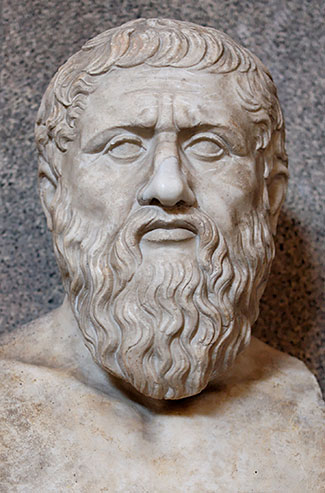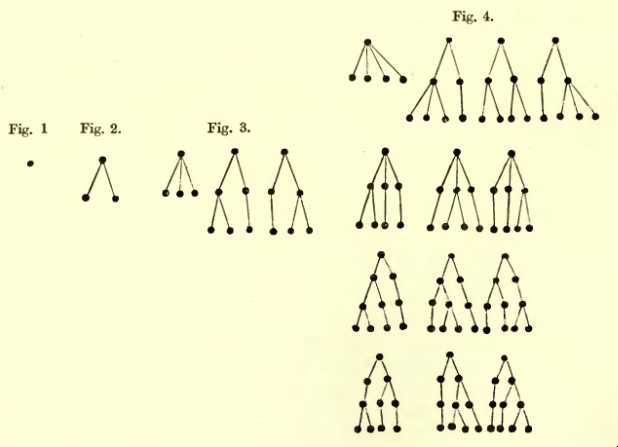Guy and Doll have agreed that Guy will act as Doll directs, and that Doll is entitled to use force or punishment to get Guy to do as she directs if he ever demurs or falls short. Guy has contracted to be Doll’s slave. Such contracts are familiar from fiction and from history; and some people may have familiarity with them in contemporary life. It is common for philosophers to argue that such contracts are impossible.
The post Slavery contracts appeared first on OUPblog.
Most people have a good idea what it is to have a Stoical attitude to life, but what it means to have an Epicurean attitude is not so obvious. When attempting to decipher the true nature of Epicureanism it is first necessary to dispel the impression that fine dining is its central theme.
The post Epicureanism: eat, drink, and be merry? appeared first on OUPblog.
Kantian ethical anarchism is ethical anti-statism. It says that there is no adequate rational justification for political authority, the state, or any other state-like institution, and that we should reject and exit the state and other state-like institutions, in order to create and belong to a real-world, worldwide ethical community, aka humanity, in a world without any states or state-like institutions.
The post A world with persons but without states appeared first on OUPblog.
If there were superintelligent beings – creatures as far above the smartest human as that person is above a worm – what would they value? And what would they think of us? Would they treasure, tolerate, ignore, or eradicate us?
The post What might superintelligences value? appeared first on OUPblog.
Robert Hanna presents an argument based on some highly-plausible Kantian metaphysical, moral, political premises, about a huge real-world problem that greatly concerns me: the global refugee crisis, including its current manifestation in Europe.
The post A world with persons but without borders appeared first on OUPblog.
The French celebrate their National Day each year on July 14 by remembering the storming of the Bastille, the hated symbol of the old regime. According to the standard narrative, the united people took the law in its own hands and gave birth to modern France in a heroic revolution. But in the view of Immanuel Kant (1724-1804), the famous German philosopher, there was no real revolution, understood as an unlawful and violent toppling of the old regime.
The post Was the French revolution really a revolution? appeared first on OUPblog.
Philosophy is one of the oldest fields of study in the world, branching out to various areas. How well do you know the writings of the most influential philosophers? Do you know the difference between sayings from Kant, Nietzsche, and Locke? Take the quiz below to see how well read you are in philosophy.
The post Can you match the quote to the philosopher? [quiz] appeared first on OUPblog.
By Graham Priest
If you go into a mathematics class of any university, it’s unlikely that you will find students reading Euclid. If you go into any physics class, it’s unlikely you’ll find students reading Newton. If you go into any economics class, you probably won’t find students reading Keynes. But if you go a philosophy class, it is not unusual to find students reading Plato, Kant, or Wittgenstein. Why? Cynics might say that all this shows is that there is no progress in philosophy. We are still thrashing around in the same morass that we have been thrashing around in for over 2,000 years. No one who understands the situation would be of this view, however.
So why are we still reading the great dead philosophers? Part of the answer is that the history of philosophy is interesting in its own right. It is fascinating, for example, to see how the early Christian philosophers molded the ideas of Plato and Aristotle to the service of their new religion. But that is equally true of the history of mathematics, physics, and economics. There has to be more to it than that—and of course there is.

Plato, Museo Pio-Clementino, Vatican
Great philosophical writings have such depth and profundity that each generation can go back and read them with new eyes, see new things in them, apply them in different ways. So we study the history of philosophy that we may do philosophy.
One of my friends said that he regards the history of philosophy as rather like a text book of chess openings. Just as it is part of being a good chess player to know the openings, it is part of being a good philosopher to know standard views and arguments, so that they can pick them up and run with them.
There is a lot of truth in this analogy, but it sells the history of philosophy short as well. Chess is pursued within a fixed and determinate set of rules. These cannot be changed. But part of good philosophy (like good art) involves breaking the rules. Past philosophers may have played by various sets of rule; but sometimes we can see their projects and ideas can fruitfully (perhaps more fruitfully) be articulated in different frameworks—perhaps frameworks of which they could have had no idea—and so which can plumb their ideas to depths of which they were not aware.
Such is my view anyway. It is certainly one that I try to put into practice in my own teaching and writing. I find that using the tools of modern formal logic is a particularly fruitful way of doing this. Let me give a couple of examples.
One debate in contemporary metaphysics concerns how the parts of an object cooperate to produce the unity which they constitute. The problem was put very much on the agenda by the great 19th century German philosopher and logician Gottlob Frege. Consider the thought that Pheidippides runs. This has two parts, Pheidippides and runs. But the thought is not simply a list, <Pheidippides, runs>. Somehow, the two parts join together. But how? Frege’s answer (we do not need to go in the details) ran into apparently insuperable problems.
Aristotle went part of the way to solving the problem over two millenia ago. He suggested that there must be something which joins the parts together, the form (morphe), F, of the proposition. But that can be only a start, as a number of the Medieval European philosophers noted. For <Pheidippides, F, runs> seems just as much a list as our original one, so there has to be something which joins all these things together—and we are off on a vicious infinite regress.
The regress is broken if F is actually identical with Pheidippides and runs. For then nothing is required to join F and Pheidippides: they are the same. Similarly for F and runs. But Pheidippides and runs are obviously not identical. So identity is not, as logicians say, transitive. You can have a=b and b=c without a=c. It is not clear that this is even a coherent possibility. Yet it is, as modern techniques in a branch of logic called paraconsistent logic can be used to show. I spare you the details.
A quite different problem concerns the topic in modern metaphysics called grounding. Some things depend for their existence on others. Thus, a chair depends for its existence on the molecules which are its parts; these, in turn, depend for their existence on the atoms which are their parts; and so on.
It contemporary debates, it is standardly assumed that this process must ground out in some fundamental bedrock of reality. That idea was attacked by the great Buddhist philosopher Nāgārjuna (c. 2c CE), with a swathe of arguments. Ontological dependence never terminates: everything depends on other things. Again, it is not clear, Nāgārjuna’s arguments notwithstanding, that the idea is coherent. If everything depends on other things, we have an obvious regress; and, it might well be thought, the regress is vicious. In fact, it is not. It can be shown to be coherent by a mathematical model employing mathematical structures called trees, all of whose branches may be infinitely long. Again, I spare you the details.

Of course, in explaining my two examples, I have slid over many important complexities and subtleties. However, they at least illustrate how the history of philosophy provides a mine of ideas. The ideas are by no means dead. They have potentials which only more recent developments—in the case of my examples, in contemporary logic and mathematics—can actualize. Those who know only the present of philosophy, and not the past, will never, of course, see this. That is why philosophers study the history of philosophy.
Graham Priest was educated at St. John’s College, Cambridge, and the London School of Economics. He has held professorial positions at a number of universities in Australia, the UK, and the USA. He is well known for his work on non-classical logic, and its application to metaphysics and the history of philosophy. He is author of One: Being an Investigation into the Unity of Reality and of its Parts, including the Singular Object which is Nothingness.
Subscribe to the OUPblog via email or RSS.
Subscribe to only philosophy articles on the OUPblog via email or RSS.
Images: Bust of Plato, Public Domain via Wikimedia Commons. Image of a graph as mathematical structure showing all trees with 1, 2, 3, or 4 leaves, Public Domain via Wikimedia Commons.
The post Philosophy and its history appeared first on OUPblog.





